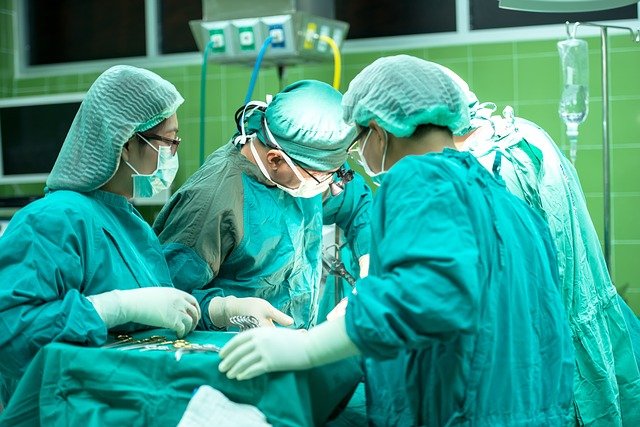
What to Do If Your Pet is Hit By a Car, Shot, Stabbed, or Loses an Eye
Emergency veterinary offices see the worst things that can happen to animals: Car accidents, gunshots, lacerations, impalements by sticks, snakebites, and other traumas. One common theme we see among the better outcomes are owners who stay calm. In this article I will detail a few strategies that can mean the difference between life and death before you get to the veterinary office.
Car accident
What should you do if your dog is hit by a car? First move the animal out of traffic to a safe location carefully. Be careful yourself as you do this. Your pet is likely extremely frightened and in pain. Many dogs will bite their owners while in this state of shock.
When lifting use a blanket, flat board, or anything you have to limit the movement of the head, neck, and spinal cord. If your pet is having trouble breathing, carefully attempt to place the pet sitting up with his abdomen lying flat on the ground. Note if there is any bleeding or obvious fractures present. Fractures that are obviously displaced can be stabilized with things such as a rolled up magazine and duct tape. If you pet is very aggressive or painful, you should forget the homemade splint and place them in a confined area to limit movement. Once you have done this, seek veterinary attention for your pet immediately. Even if you’re pet seems ok after the event, they may have internal injuries that are not immediately apparent.
Gunshot
We live in a mixed area of rural and city life. Oddly enough many of the gunshot wounds we see come from the city, not the country. If your pet has been shot, quickly assess where it has been hit. Notice if there are problems breathing, excessive bleeding, or obvious fractures. If there is excessive bleeding you may attempt to stop the blood by applying pressure with your hands or wrapping a tight bandage around the wound. If the blood continues to seep through the bandage do not remove it. Continue to wrap more bandage material around the wound. If you remove the first bandage you are effectively removing all the clotting that the first bandage helped promote. If there is bleeding coming from a distal limb, you can attempt to elevate the limb above the heart to reduce blood flow.
As with hit by car cases, your pet may become aggressive from the pain and shock so move slowly and attempt to calm them down. Ice packs can be placed over the bandage to help slow the blood flow as well. Once again seek veterinary help immediately, the quicker your pet is evaluated the better the chance for a good outcome.
Lacerations
If your pet has become impaled on an object such as this DO NOT PULL IT OUT. Pulling the object out of the wound can cause trauma, increased hemorrhage, and can cause your pet to die. One of my mentors once had a case where a dog had a stick going straight through his heart. The owner did not pull it out and the dog made it to the clinic in relatively good shape. Once again try and calm your pet. If there is active, open bleeding apply a pressure bandage as best you can. Rush your pet to the veterinarian as soon as possible for evaluation.
Other types of lacerations we see are typically caused by dog attacks, bear attacks, or various other means of cutting the skin. Treat these as you would a bleeding gunshot or hit by car. A pressure bandage is of great value here while you are in transit to your veterinarian. If you remember, buy some next time you are at the pharmacy and stash them in your glove compartment. A cold pack can be applied to the bandage to help slow the flow of blood. If your pet has a large open laceration don’t wait to seek treatment. Wounds such as these become infected very easily and fixing them quickly helps to minimize infection and complications.
Eyeball prolapses
Pugs, Shih Tzus, Boston Terriers, and short-faced breeds are prone to prolapsed eyeballs. They have a reduced orbital socket so the eye pops out easily. This can happen if they run into an object, bang their head too hard, or anything that applies pressure to the head. If this occurs, do not attempt to place the eye back in the socket. You may place a moist cloth over the eye and then seek veterinary attention immediately. If the eyeball is replaced in the first two hours there should be minimal long-term damage. If the eyeball is out longer than this, there is increased risk of permanent damage and may result in the eyeball having to be removed.
Many of these first aid strategies are similar despite the different events that may have happened to your pet. Always attempt to stay calm and calm your pet as much as possible. Move slowly and realize that your pet is likely painful. Even the nicest pet can bite if they are scared and in pain. In most cases of hemorrhage attempts to control the bleeding should be made. Never pull an object out of your pet’s eye or body. Always seek veterinary attention as soon as possible in any of these events. Prompt medical attention always increases the chances of a favorable outcome and minimizes complications that can occur.
For more information, contact our team at VETSS, a Charlottesville VA urgent care animal hospital!

